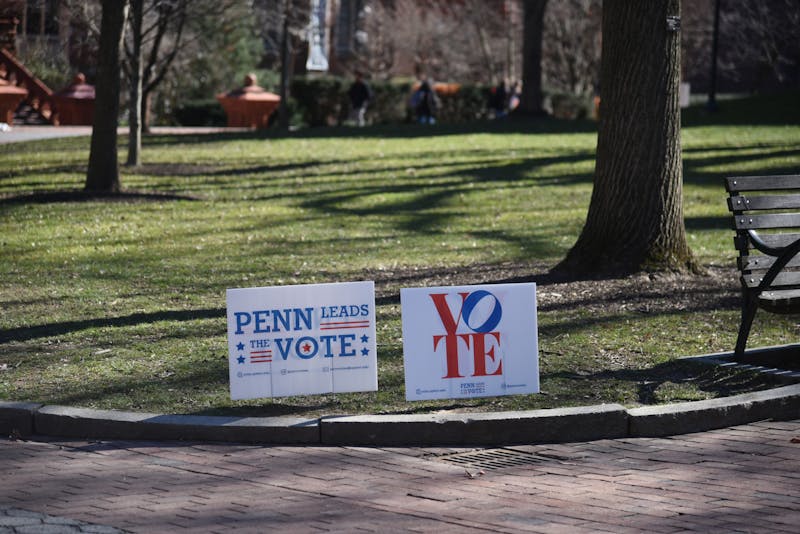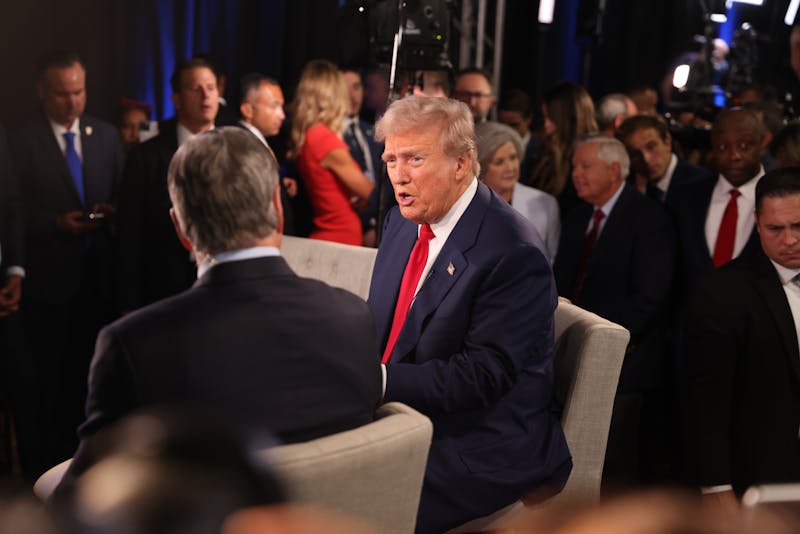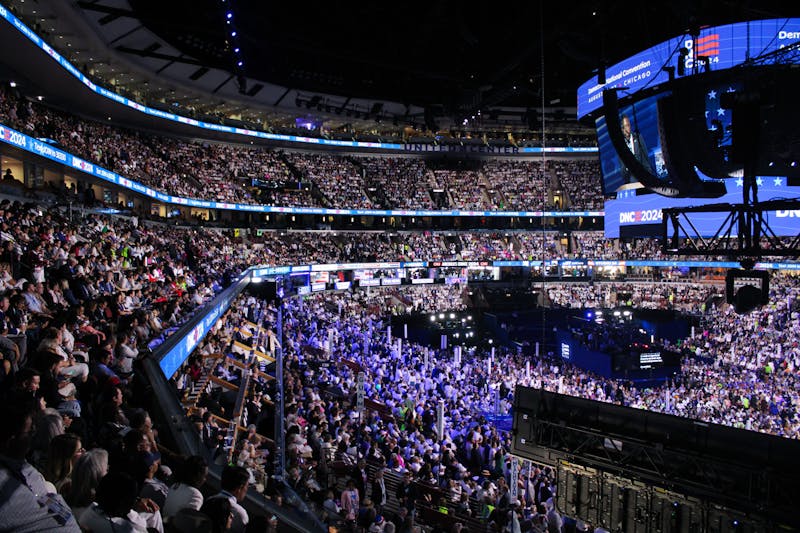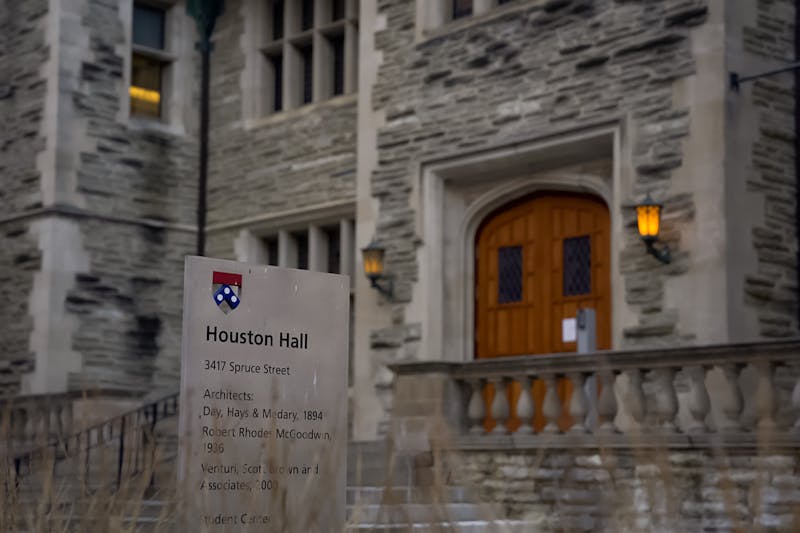
Columnist Ananya Shah encourages undecided voters to look at issues other than the economy when deciding for whom to vote.
Credit: Grace ChenThe clock is ticking, Pennsylvania. With the voter registration deadline now behind us and Election Day just under a week away, the importance of this election looms large. For many voters, the decision is made, ballots are filled out, and the campaign ads are simply background noise. Yet, for a crucial 2%-5% of the electorate that are undecided, every ad, debate, and headline still matters. In what could be one of the closest presidential races in modern history, this sliver of the voters has the power to decide who will lead the nation for the next four years.
It’s not surprising that both campaigns are hammering away at economic issues. With inflation, gas prices, and unemployment affecting daily life, candidates know that 81% of voters cite the economy as being very important to their decision in the election. Kamala Harris and Donald Trump ads flood the airwaves, each promising economic stability, growth, and support for the middle class. Yet, here’s the problem: If the economy hasn’t already won over these undecided voters, it might not be the tipping point after all. Perhaps what this final group needs is a focus on issues that haven’t been on the media’s center stage but still have a direct impact on our lives.
Let’s consider an issue that will outlast any single presidential cycle: U.S. Supreme Court appointments. In recent years, the court has reshaped American life with decisions that will reverberate for generations. The overturning of Roe v. Wade in 2022, stripping federal protections for abortion, and the end of affirmative action in college admissions in Students for Fair Admissions v. Harvard and v. UNC were seismic shifts in U.S. policy. These rulings weren’t just headlines: They were deep, structural changes.
And yet, despite these monumental decisions, the Supreme Court has gotten little to no coverage in this election cycle. The role of the Supreme Court is rarely the focal point of campaign discussions, but make no mistake — whoever sits in the Oval Office will also shape the court. Justice Clarence Thomas and Justice Samuel Alito, both in their 70s, are likely approaching retirement, giving the next president a chance to appoint successors who will shape the court's ideological balance for decades to come. With a 21% increase in rulings aligned along party lines — the highest in history — the polarization within the court should give voters pause.
And let’s not forget climate change, the elephant in the room that neither campaign seems too eager to address head-on. With the increasing frequency and severity of extreme weather seen with Hurricanes Helene and Milton, the gravity of the effects of climate change is beginning to affect the American electorate’s day-to-day lives. During their last debate, Harris dedicated a mere one minute and 44 seconds to environmental policy, while Trump gave it just one minute and 31 seconds. This is baffling considering that a majority of Americans believe that climate change is already causing harm today. Yet, both candidates have skirted around comprehensive environmental policies, seemingly hesitant to make firm commitments that could alienate key swing voters.
The silence on climate change may be strategic, but it’s also shortsighted. Rising temperatures, intensifying storms, and an unpredictable environment will affect everything from our economy to our infrastructure and health. For young undecided voters in particular, the consequences of climate inaction are real and urgent. If there were ever an issue that could define a generation’s trust — or mistrust — in government, this is it.
As voters, the question becomes: How can we bring focus to these issues if candidates won’t? When climate change and Supreme Court appointments impact your future job market, education, and quality of life, they deserve your voice and your vote. In casting a ballot, you have the chance to demand attention to issues that truly matter to your generation's future.
So, as Election Day looms, these undecided voters should be asking themselves a few big-picture questions. Do we want leaders who will view Supreme Court appointments as political pawns, or do we demand a commitment to judicial impartiality? And when it comes to the climate, do we want an administration willing to face the climate crisis head-on, or one that keeps kicking the can down the road?
As Penn students, you’re not just spectators to this election; you're participants whose votes could genuinely influence the future. In a state as critical as Pennsylvania, where every ballot counts, the issues on the table directly affect the lives you'll step into after graduation. Supreme Court appointments and climate policy might seem like distant topics, but they’re shaping the world where you’ll work, live, and build families.
These questions should guide undecided voters to think about the kind of legacy they want their vote to leave — not just in the next four years, but for future generations.
ANANYA SHAH is a College first year studying philosophy, politics, and economics from Bonaire, Ga. Her email is aoshah@sas.upenn.edu.
The Daily Pennsylvanian is an independent, student-run newspaper. Please consider making a donation to support the coverage that shapes the University. Your generosity ensures a future of strong journalism at Penn.
Donate








